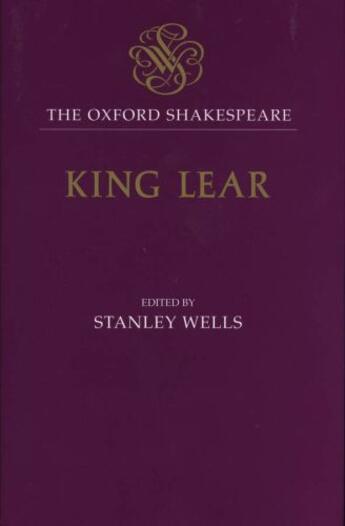Des idées de lecture pour ce début d'année !
Passionné(e) de lecture ? Inscrivez-vous
gratuitement ou connectez-vous pour rejoindre la
communauté et bénéficier de toutes les fonctionnalités du site !

King Lear, widely considered Shakespeare's most deeply moving, passionately expressed, and intellectually ambitious play, has almost always been edited from the revised version printed in the First Folio of 1623, with additions from the quarto of 1608. Acting on recent discoveries, this volume presents the first full, scholarly edition to be based firmly on the quarto, now recognized as the base text from which all others derive. A thorough, attractively written introduction suggests how the work grew slowly in Shakespeare's imagination, fed by years of reading, thinking, and experience as a practical dramatist. Analysis of the great range of literary and other sources from which he shaped the tragedy, and of its critical and theatrical history, indicates that the play felt as shocking and original to early audiences as it does now. Its challenges have often been evaded, notably in Nahum Tate's notorious adaptation. During the twentieth century, however, deeper understanding of the conventions of Shakespeare's theatre restored confidence in the theatrical viability of his original text, while the play has also generated a remarkable range of offshoots in film, television, the visual arts, music, and literature.
The commentary to this edition offers detailed help in understanding the language and dramaturgy in relation to the theatres in which King Lear was first performed. Additional sections reprint the early ballad, ignored by all modern editors, which was among its earliest derivatives, and provide additional guides to understanding and appreciating one of the greatest masterworks of Western civilization.
Il n'y a pas encore de discussion sur ce livre
Soyez le premier à en lancer une !

Des idées de lecture pour ce début d'année !

Si certaines sont impressionnantes et effrayantes, d'autres sont drôles et rassurantes !

A gagner : la BD jeunesse adaptée du classique de Mary Shelley !

Caraïbes, 1492. "Ce sont ceux qui ont posé le pied sur ces terres qui ont amené la barbarie, la torture, la cruauté, la destruction des lieux, la mort..."